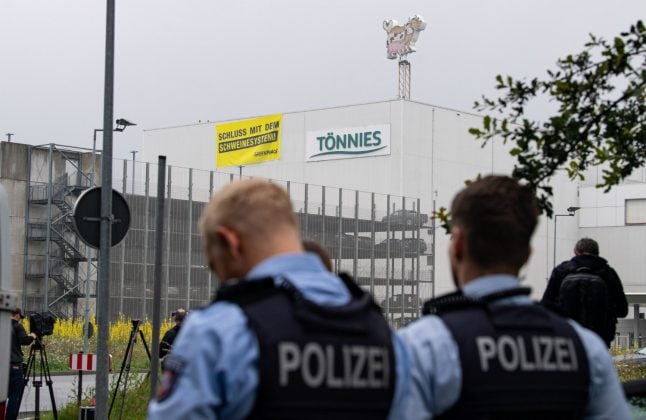North Rhine-Westphalian Health Minister Karl-Josef Laumann, of Angela Merkel's Christian Democrats (CDU), said during a TV interview on Thursday that stricter official inspections would take place on a regular basis.
“Tönnies will work completely differently than before”, he said.
Among other things, the factory's 6,500 employees will be be regularly tested for coronavirus.
READ ALSO: Coronavirus: German politician floats prison sentence for billionaire slaughterhouse boss
Appraisers to inspect the workplaces
After around 1,400 Tönnies employees became infected with the coronavirus in mid-June, production was halted by authorities in the Gütersloh district.
The factory's workers were ordered into quarantine and the districts of Gütersloh and Warendorf were ordered into lockdown – a restriction which has now been lifted.
Going forward, according to the city of Rheda-Wiedenbrück, a permit for meat processing will only be reissued after another examination this week.
READ ALSO: What you need to know about Germany's new local coronavirus lockdowns
Among other things, experts are also to inspect the Plexiglas panes that separate the workers during the heavy physical work.
Relief and protests
Tönnies slaughters between 20,000 and 25,000 pigs per day in normal operation at its headquarters. A total of 30,000 are officially permitted.
Laumann, however, said that this number would only remain if the company could guarantee better health protection for employees.
The temporary halt in production led to complaints from breeders about overcrowded stables.
Yet not everyone was happy that the factory was back in operation. Greenpeace activists gathered outside of the factory Thursday to protest mass meat production and the deplorable conditions they say result to both people and animals as a result of it.
Although the plant was opening, slaughtering of animals was not due to take place yet.



 Please whitelist us to continue reading.
Please whitelist us to continue reading.
Member comments